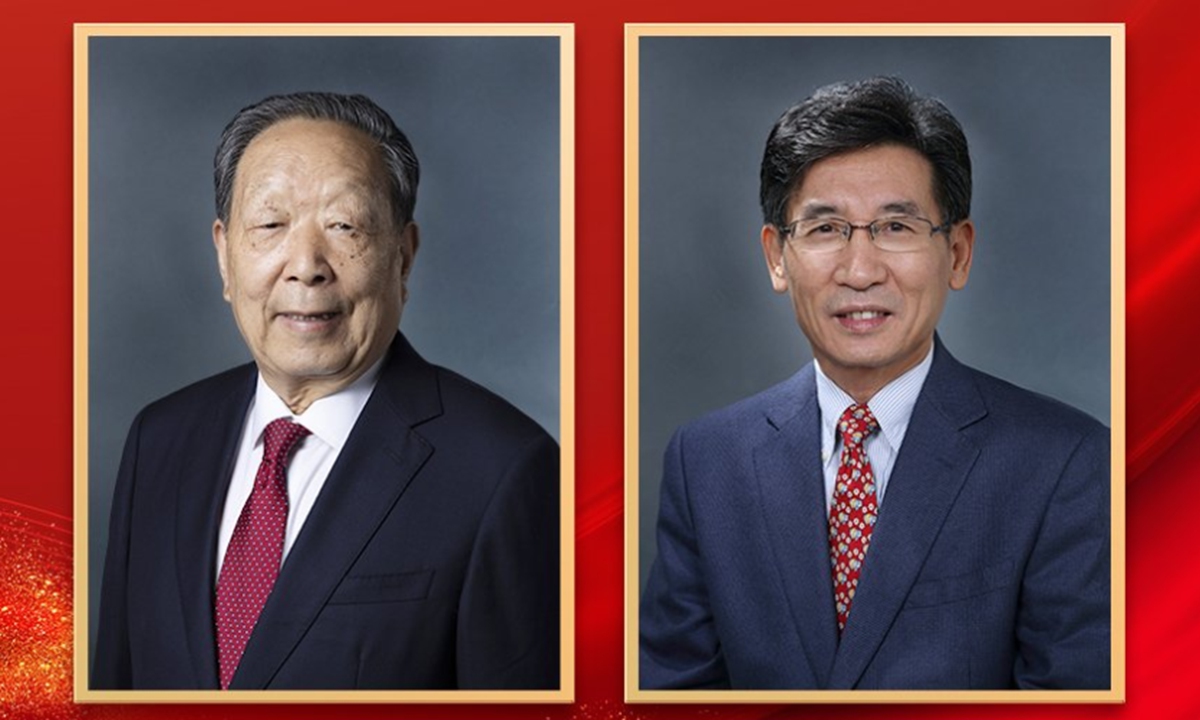
Li Deren (left) and Xue Qikun (right)
Two Chinese scientists - Li Deren, a renowned photogrammetry and remote sensing expert and Xue Qikun, prominent scientist in the field of condensed matter physics - won China's top 2023 annual science award Monday for their outstanding contributions to scientific and technological innovation.
Li, 84, has been dedicated to improving China's surveying and remote sensing capabilities. He successfully developed core technologies for global high-precision positioning and mapping using satellite remote sensing, solving a series of challenges in high-precision processing of remote sensing satellite images.
Recognizing the country's limited development in high-resolution remote sensing capability during the 2008 Wenchuan earthquake, Li led his team in developing a fully automatic high-resolution earth observation system in China.
Amid the 2020 COVID-19 epidemic, Li used aerospace remote sensing methods to complete the environmental assessment of the construction of makeshift hospitals Huoshenshan and Leishenshan on the surrounding environment in the first time.
During the flood season in 2023, the satellite independently developed by the Li's team obtained radar images of the disaster-stricken areas in North China's Hebei Province, and observed a breach in a levee. The timely warning saved more than 6,400 people from danger.
Xue, 61, is a prominent scientist in the field of condensed matter physics, achieving several groundbreaking scientific breakthroughs.
Xue led his team in the first experimental observation of the quantum anomalous Hall effect, which had significant international influence academic circles. This major research achievement was praised by Nobel laureate Yang Chen Ning as "the first Nobel Prize-level physics paper published from a Chinese laboratory."
Discovering new scientific phenomena and scientific laws is the pearl on the crown of basic research. For a country to be strong, we must create things that truly represent scientific discoveries in the world, Xue had said.
Xue also discovered interface-enhanced high-temperature superconductivity in heterostructure systems, opening up a new research direction in the international field of high-temperature superconductivity.
Xue had also won 2024 Oliver E. Buckley Condensed Matter Physics Prize, marking the first time the prize has been awarded to a Chinese physicist since it was first awarded in 1953.
China's top science award on Monday made him the youngest winner of the top science award in China. Born in East China's Linyi in 1963, Xue obtained a PhD in Physics from the Institute of Physics, Chinese Academy of Sciences in 1994, and then went to work at the Institute of Metal Materials, Tohoku University in Japan. In August 1999, he was selected for the Hundred Talents Program of the Chinese Academy of Sciences and returned to work at the Institute of Physics, Chinese Academy of Sciences.
Throughout the years, Xue also served as vice president of Tsinghua University and is now president of Southern University of Science and Technology.




